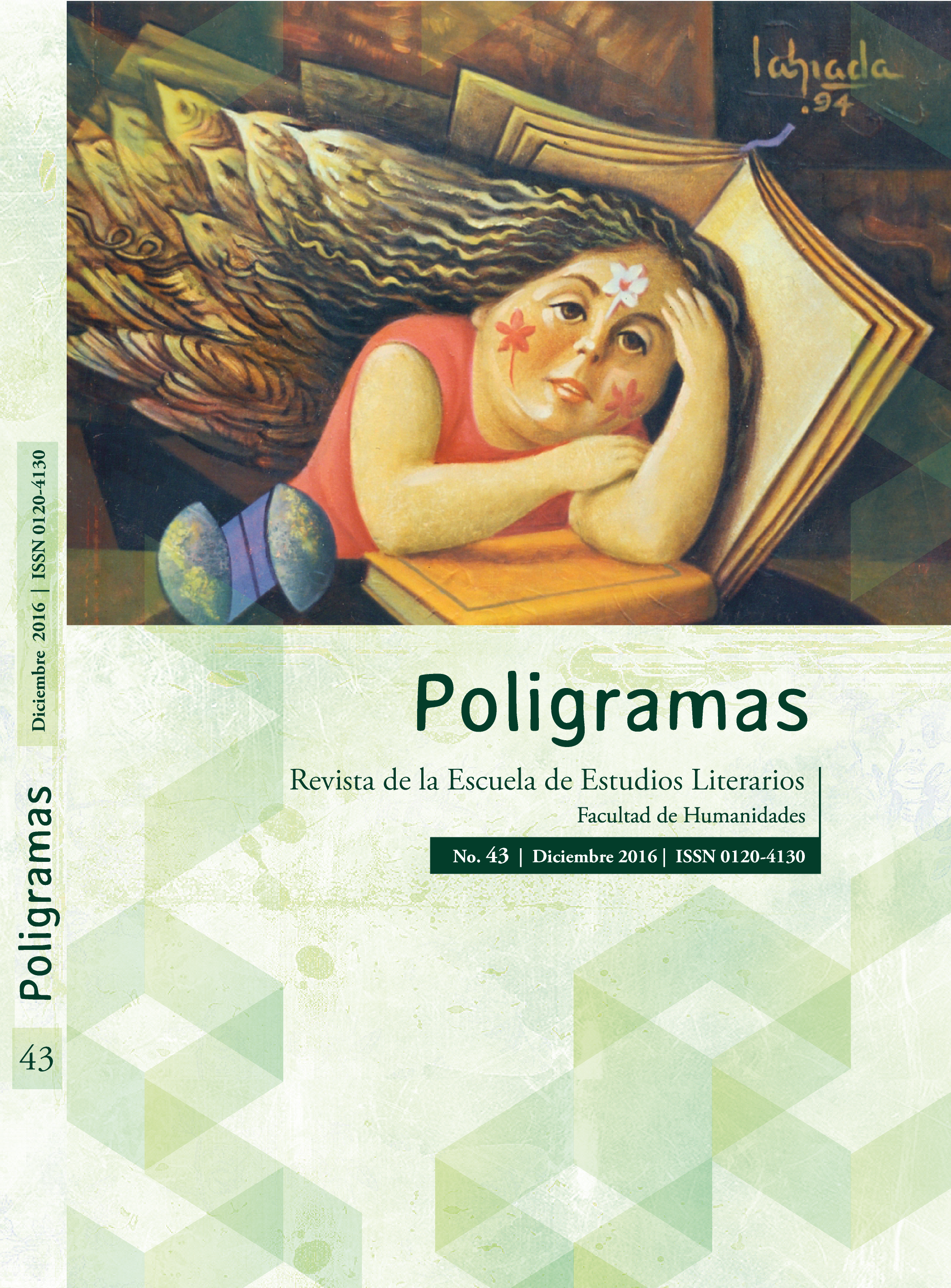Animals in the Haikus of José Juan Tablada: Taxonomy of an Inner Fauna
Main Article Content
In his book of haikus entitled A Vase of Flowers, by the Mexican poet José Juan Tablada (1871-1945), animals comprise perceptual stages toward the reconstruction of the poetic voice in an inner pilmigrage. It starts with the search of a primitive voice embodied in the toad and the dog. The next stage is a Japanese garden with minuscule animals who escape to perception. The next stage will be a Hispanoamerican landscape with large anaimals subdued to the poetic gaze. Subsequently the poet takes control on his poetic voice in an oceanic landscape, with sea animals elaborated through intertextuality. Final destination is the integration of those perceptual stages into his poetic voice.
- José Juan Tablada
- animals
- haikú
- modernism
- orientalism
Vásquez Hurtado, D. (2016). Animals in the Haikus of José Juan Tablada: Taxonomy of an Inner Fauna. Poligramas, (43), 69–87. https://doi.org/10.25100/poligramas.v0i43.4396
Downloads
Download data is not yet available.





